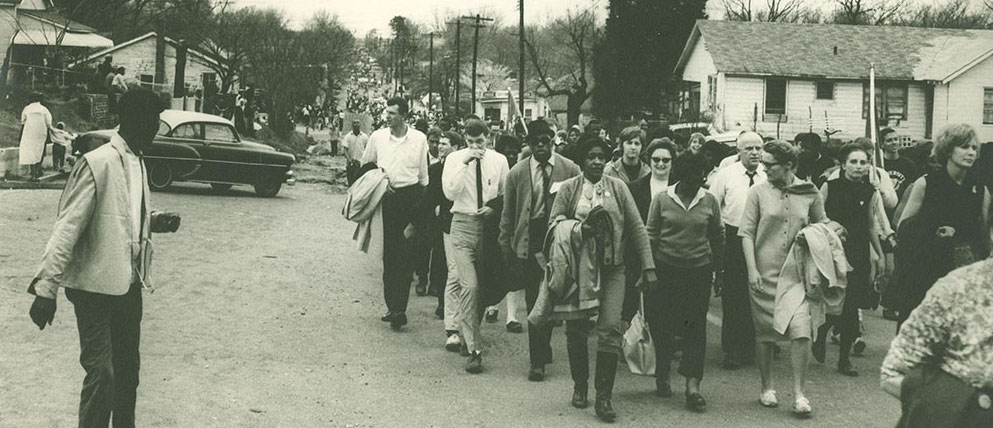On Sunday, March 7, 1965, 600 people participated in the historic civil rights march from Selma to Montgomery, Alabama. Organized by the Southern Christian Leadership Conference as part of a national campaign to pass the Voting Rights Act, the march used peaceful protest to draw attention to restrictions on African American voters. Marchers covered only six blocks before local and state police attacked them with clubs and teargas. A second march took place two days later, which James J. Reeb, a graduate of Princeton Theological Seminary and Unitarian Universalist minister, joined. When it was over, three people had been killed in the Alabama marches: Jimmie Lee Jackson, shot while protecting his grandmother from troopers with billy clubs; Violet Liuzzo, shot while transporting marchers in her car; and Reeb, beaten to death for eating in a black-owned restaurant.
One year later the Seminary held a service and installed a plaque on campus in Reeb’s memory. It also held a series of five annual lectures by internationally distinguished religious and civic leaders. How do these lectures, given 50 years ago, inform current social justice efforts among persons of faith? Geddes W. Hanson, PhD 1972, Charlotte W. Newcombe Professor of Congregational Ministry Emeritus, wrote recently,
“Invoking the name of James Reeb means thinking about race/racism in the U.S. To my mind, the word racism (and its cognates) is tossed about with insufficient nonchalance as to be almost worthless. By it I mean a conscious or unconscious de-valuing of the lives, experiences, culture, or thought of a group – in this country, typically of any non-white groups.”
